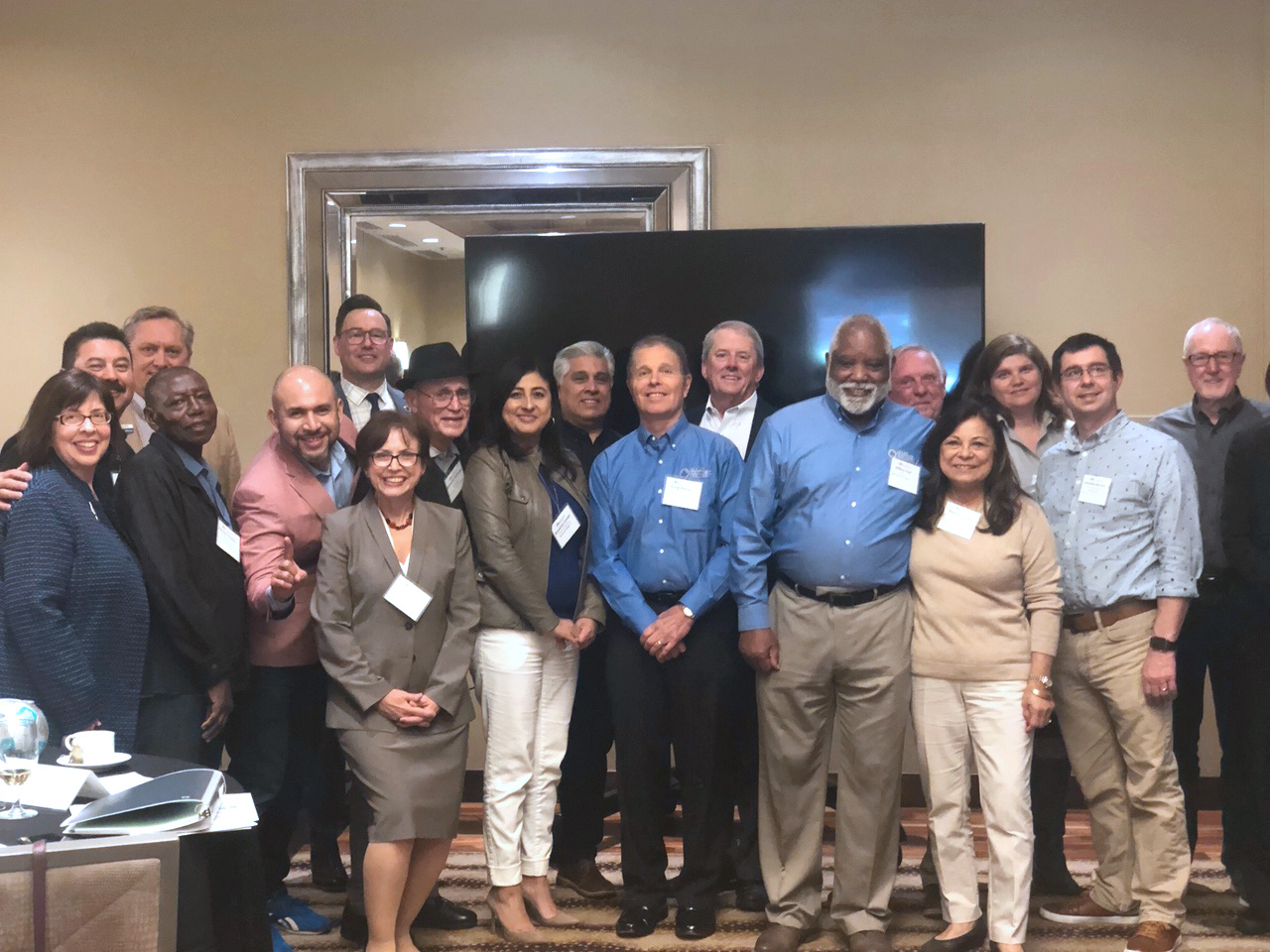Helping Boards Face the Future: Seismic Changes for 21st Century Student Success & Workforce Preparation
Twenty-eight (28) participants from five Central California community colleges attended the 2019 GISS- held March 24-25, 2019, at Hotel Corque in Solvang, CA. Of this number, 20 were trustees and three were college presidents. The remaining participants were top administrative staff members from the colleges. The institute was the thirty-third (33rd) GISS institute sponsored by ACCT in twenty-three (23) states since 2010. This particular institute was generously sponsored by Allan Hancock College in Santa Maria, California. The Community College League of California also contributed.
Other key partners in the event included speakers from the California Community College Chancellor’s Office, Excelencia in Education and ACCT’s Board of Directors member, Bernie Rhinerson, also a trustee of the San Diego Community College District. The program was facilitated by Colleen Allen, Director of Educational Services at ACCT and Rhinerson.
The five participating colleges included:
- Allan Hancock College
- Gavilan College
- Palo Verde Community College
- Rio Hondo College
- Santa Barbara City College

Board Self-Assessment
Highlights of the two-day event included a session on the board’s role in policy development by Rhinerson to give trustees a national perpective of important issues for community colleges as well as boards’ basic roles and responsibilites. Boards took time to review the results of their board self-assessment moderated by Allen who also focused on the importance of data for board decision making.
California’s Vision for Success
Robert Rundquist, Visiting Senior Executive from the California Chancellor’s Office, explained the role of trustees in California’s Vision for Success and in the Guided Pathways movement. He talked about the importance of local control, advocacy, and also cited the work of the Institute for the Future. He stressed that Guided Pathways is a framework for success (not another initiative) and asked the colleges how much ownership their colleges would take in using the framework. Student success needs to be integrated at every level throughout the college.
Excelencia in Education
Following Rundquist, Excelencia in Education’s President, Dr. Sarita Brown, covered the life outcomes among graduates of Hispanic-Serving Institutions (HSIs) and the board’s role in equity issues. Her data showed that 66% of Latinos attend an HSI and that 69% of HSIs are located in California, Texas, Puerto Rico and New York. All of the participating colleges –Allan Hancock, Gavilan, Palo Verde, Rio Hondo and Santa Barbara– are HSIs, and her presentation was well-received.
Data-informed Governance: Using Data to Tell your Story
Each college was given Student Scorecard data reports to review. Rhinerson led a discussion on how to use your data points to tell your story and advocate for your college, i.e. KNOW your numbers, approach decision making in an informed ways, focus on completion. Discussion around specific legislation in California ensued, including a discussion around degrees of relevance. The participants considered various strategies to effect change.
Changing Worlds of Work and Learning
On the second day, a major highlight of the program was focus on disruption and changes over time. An interesting presentation by Sheneui Weber, the Vice Chancellor of Workforce and Economic Development in the California Community College Chancellor’s Office about the transformation of California’s community colleges and what boards should know followed. Weber gave a review of the Board’s role in the changing worlds of work and learning, which provided attendees opportunities to think about both the upcoming changes in higher education and the changes in their own lives. She focused on trends and opportunities and noted that despite the disruptions in delivery and the adoption of AI, the world still needs critical thinkers. Skills competencies can translate into employability, wage gain and economic mobility. Community colleges play a critical role in helping students start and advance their careers. She also noted that 25% of community college students are transfers from high school.
Her talk led to discussion around several bills currently sunsetting or on the docket in CA—discussion about best ways to advocate, tell the story, solicit support…etc. (all keeping in mind the individual role of the trustee, the board, policy development, etc.) She suggested that community colleges need to be entrepreneurial, which resulted in some pushback because some presidents and trustees indicated that the system office should offer more support, particularly to isolated rural communities where transfer to a four-year college is not an option for many of their students (working adults, farmers, families, etc.).
Just before lunch, attendees heard from Dr. Larry Galizio, President and CEO of the Community College League of California who spoke about professional development opportunities for board improvement and for CEOs. After lunch, Allen led the group to develop and share their plans for policy action agendas for when they returned to their districts. The institute concluded at 2:00 PM.


